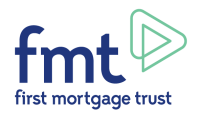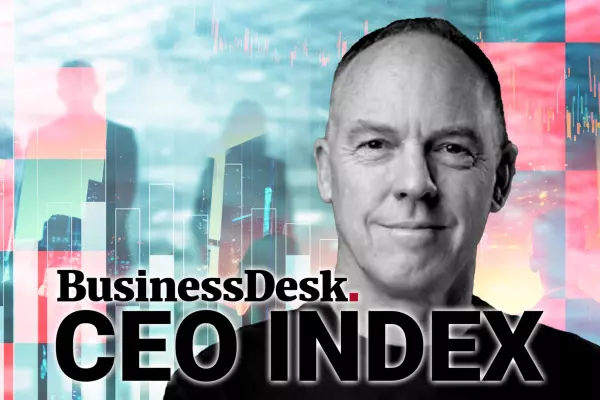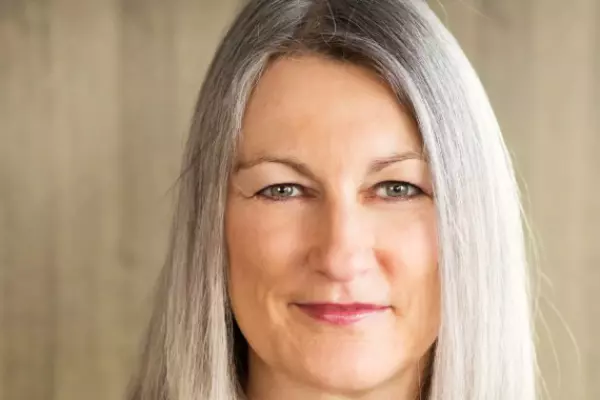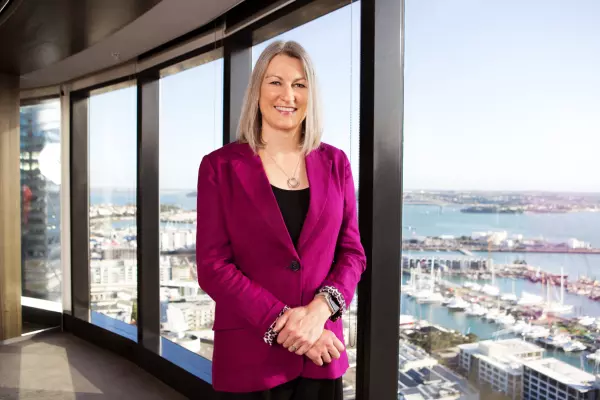BusinessDesk investments editor Frances Cook responds to emails from readers each week to answer questions about money. Below, you will find her expert advice. Send your own questions to [email protected].
Hi Frances,
Love your articles and podcast, really informative!
On the topic of credit history, I’ve never found the need to get a credit card, but when I started professionally working after uni and the desire to get in the housing market and buy my first house grew a lot stronger. I’ve had conversations with multiple different colleagues and they would typically mention that since banks are strict with lending (especially now), having a good ‘credit score’ will show proof that you’re able to stay on top of payments.
So I’ve been going back and forth for over a couple of months now on the idea of opening up a credit card to get more credit history on my plate.
I’d love to hear your thoughts on the idea of getting a credit card, be an angel with payments and reap in the rewards they offer, such as flybuys, then use the flybuys points to convert into extra KiwiSaver contributions?
Is this worth getting into and paying additional annual fees just to own the credit card? Do the pros outweigh the cons?
But contradictingly, isn’t it better for the banks to see that I’ve never been in credit card debt?
Would love to hear your take on this.
Thanks,
G
Hi G,
Great question.
First, it’s worth letting other readers know what sparked this conversation. One of my top tips for when you’re applying for a mortgage is to be really careful about any credit cards you have, and consider reducing your credit limit, or cancelling the card.
That’s because people are often caught out by credit cards when applying for a mortgage. Even if you’re a total angel in how you use it, paying it off in full each month, the banks see an open credit limit as your ‘credit potential’. So when you’re making your application, an (unused) credit card limit of $10,000 may be treated as if you’re $10,000 in credit card debt.
What impact does this have? Well, it changes bank to bank, but as a rough rule of thumb, multiply that credit limit by six, and wipe that off how much the bank will loan you for a mortgage.
So, a $10,000 credit card limit could reduce your mortgage lending by $60,000. $20,000 could reduce your borrowing power by $120,000.
Big impact. This is why I say it’s worth considering reducing limits or closing credit cards before making the mortgage application.
How to build a history
Now let's get back to your actual question – what about before you make the application? How do you build a good credit history, and what tactics work at different stages?
Yes, a good credit history helps when you’re making your mortgage application. It could mean you qualify for a lower deposit mortgage, or a better interest rate.
The thing is, you don’t have to have a credit card to build up this history. You can build up credit history through other places.
In New Zealand, we have positive credit reporting, which means regular, on-time payments to things such as a phone plan or your electricity bill, count towards a good credit score.
If you’ve ever had a car loan, or hire purchase, that will be on there too. So, if you take on debt like that, make sure you always pay promptly in order to keep your score healthy.
You can also build up credit history through having a credit card, then getting rid of it before the mortgage application.
Just be sure that it’s working for you, not against you.
If you pay it off in full each month, that doesn’t count as being in ‘credit card debt’. But if you’re even one day late, it will ding your credit score. Better not to have the card, than to have a history of late payments.
If you do decide a credit card is a good plan for you, then looking for one with a points benefit is a good idea.
However, make sure any points aren’t outweighed by fees – most Airpoints cards cost more in fees than you’ll get back. The trick is to look for deals.
For instance, in our household we have an Airpoints card that we get in a deal through a workplace union, that means the usual fees are wiped. Zilch. My favourite price to pay.
If you’re part of a union, or other organisation that gets deals such as this, it’s worth looking into.
I've also got in touch with a few people in the industry to give you the inside word on how this all works. Here's what they have to say.
NZ Bankers’ Association chief executive Roger Beaumont:
"When considering a home loan application, banks take into account a number of factors, including your deposit and your ability to repay the loan. They will also look at your credit history.
"These days we have ‘comprehensive credit reporting’ which means credit reporting agencies look at the payments you’ve made as well as any you’ve missed, so they can build up a better picture of your credit worthiness.
"There are ways to improve your credit history if you want to. For example, getting a small loan and making sure you repay it is one way to show you can manage debt well. Paying your utility bills on time also helps build a positive credit history.
"If you’re considering borrowing from your bank, it’s always worth having a chat with them to find out what they’ll be looking for and what you can do to help get your application over the line.
When it comes to credit cards, it’s worth noting that 66.6% of card holders pay off their balance without incurring any interest costs. That’s great money management right there.
A couple of important points from Beaumont that I think are worth repeating. First, that it's good to chat directly to your bank about what they're looking for. You can always arrange a meeting with one of their mortgage team to talk about what the requirements would be, and whether they think you're in good financial shape at the moment.
In my experience, they don't mind having such meetings, and it can be very useful for you to see how all of this applies to your specific situation.
The second important thing he mentions is that if you've got a credit card and paying it off in full, that's seen as good money management. Again, you don't need to have a credit card to prove that, but if you want to, it's a tactic that works.
If you want to check your credit report, you can do it for free by contacting the credit companies directly. They’re Equifax Illion and Centrix.
You’ll see a number between 0 and 1000. Somewhere between 500-600 is considered pretty normal, and above 700 is considered pretty good.
However, the rating can change slightly between the three rating agencies, so feel free to ask them questions if you’re confused about the score they send you. And if you see any incorrect information on there, get in touch with all three straight away, to ask them to remove it.
Here’s what Equifax has to say about what impacts your credit score.
Equifax NZ managing director Angus Luffman
A credit history check is one of the key elements lenders use in assessing a mortgage application. Having a good credit history is important if you want to be approved for a mortgage. Lenders will check this as part of their approval process.
Along with credit applications in the past four years and defaults in the past five years, your credit history shows both positive and negative repayment history for each credit account over the prior 24 months – so make sure to keep on top of your current obligations.
Whilst lenders have different approaches, some form of credit history is often more useful than none. Given a mortgage assessment is dependent on the ability of a consumer to repay, an applicant may sometimes be asked to close a credit account (ie, a second credit card or personal loan) as a condition of approval.
Purchasing a home and paying off a mortgage is a form of saving, whilst having your own home to live in. Consumers who have a mortgage and a good repayment history across all their accounts will likely have the best credit scores. Other credit accounts can include utilities, personal loans, credit cards and any BNPL (buy now, pay later) commitments.
Key tips for consumers considering a mortgage:
- Pay your existing credit accounts on time each month.
- Make sure you list all your credit accounts on a mortgage application as these will be checked by the lenders against your credit history.
- If you have an open line of credit such as a credit card that you’re not using, it’s a good idea to close the account before you apply for a mortgage. Opening a credit account, paying it off and closing the account is good for your credit profile.
- Lenders will assess your income and expenses as part of your application, so make sure you have a good budget prepared. If you need some help getting started, check out https://sorted.org.nz/guides/planning-and-budgeting/how-to-start-a-budget.
Send questions to [email protected] if you want to be featured in the column. Emails should be about 200 words, and we won't publish your name. Unfortunately, Frances is not able to respond to every email received, or offer individual financial advice.
Information in this column is general in nature and should not be taken as individual financial advice. Frances Cook and BusinessDesk are not responsible for any loss a reader may suffer.















